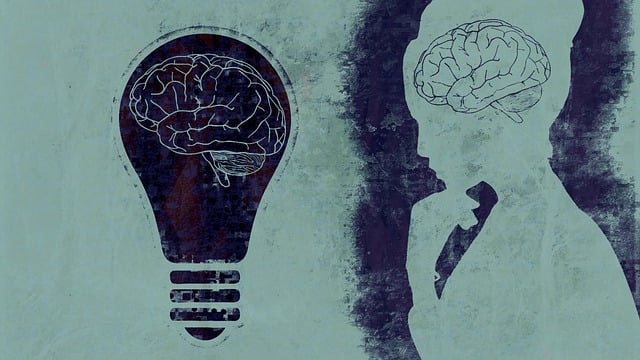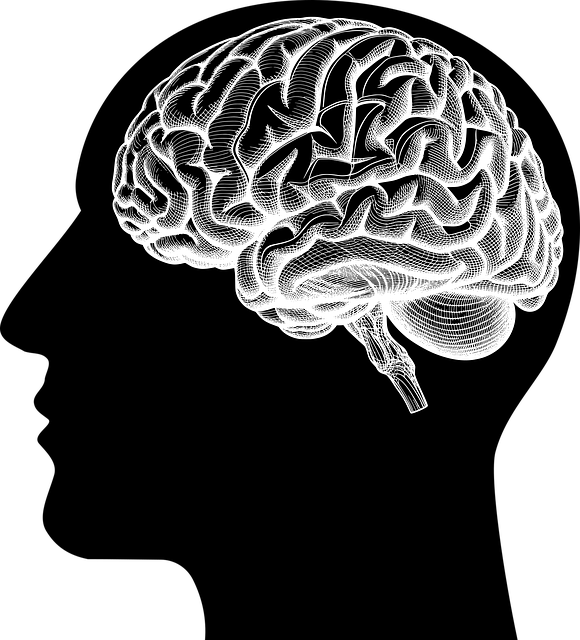Louisville is embracing positive thinking as a powerful tool for brain health and well-being, with research highlighting its benefits for cognitive functions and physical health. Louisville Neuro Disorders Therapy integrates optimism exercises into their treatment plans, focusing on both symptoms and thought patterns. The city's Mental Wellness Podcast Series emphasizes positive thinking as a coping skill, providing accessible resources. Personalized exercises like mindfulness and affirmations, combined with social skills training, enhance emotional intelligence, reduce anxiety, and improve overall well-being. This holistic approach, tailored to individual needs, supports patients, fosters community, and empowers them to adopt healthier thought patterns, complementing traditional therapy for long-term resilience. Measuring success involves structured processes combining quantitative and qualitative methods, providing insights that benefit both clients and professionals.
In Louisville, neuro disorders therapy is transforming lives through positive thinking exercises. This article explores the profound impact of positive thinking on brain health and its potential as a therapeutic tool. We delve into designing effective exercises tailored for neuro disorders, offering practical implementation strategies for clinicians in Louisville. By measuring success through evaluation, we uncover how these practices enhance recovery, making them an indispensable resource in the city’s mental health landscape.
- Understanding Positive Thinking and its Impact on Brain Health in Louisville
- Designing Effective Positive Thinking Exercises for Neuro Disorders Therapy
- Practical Implementation Strategies for Louisville Clinicians
- Measuring Success: Evaluating the Effectiveness of Positive Thinking Exercises
Understanding Positive Thinking and its Impact on Brain Health in Louisville

In Louisville, understanding positive thinking is gaining recognition as a powerful tool for brain health and overall well-being. Positive thinking refers to consciously focusing on optimistic thoughts, beliefs, and attitudes, which can significantly impact mental resilience and emotional stability. Research suggests that cultivating a positive mindset can enhance cognitive functions and even contribute to better physical health outcomes. This shift in perspective is particularly beneficial for individuals dealing with neuro disorders, as it offers an alternative coping mechanism beyond traditional therapy methods.
Louisville Neuro Disorders Therapy integrates positive thinking exercises into its comprehensive treatment plans, targeting not just the symptoms but also the underlying thought patterns. By encouraging patients to challenge negative thoughts and replace them with positive affirmations, these therapies aim to strengthen neural pathways associated with happiness and contentment. Moreover, the city’s growing Mental Wellness Podcast Series Production highlights the importance of positive thinking as a coping skill development tool, providing accessible resources for stress management and mental wellness promotion within the community.
Designing Effective Positive Thinking Exercises for Neuro Disorders Therapy

Designing effective positive thinking exercises for neuro disorders therapy requires a tailored approach that caters to individual needs. In Louisville Neuro Disorders Therapy, professionals can leverage these activities to enhance emotional intelligence and stress management skills among patients. Exercises should be engaging and accessible, focusing on practices like mindfulness meditation or positive affirmation routines, which have been proven to reduce anxiety and improve overall well-being.
By integrating social skills training into these exercises, therapists can foster a sense of community and connection, addressing potential isolation often experienced by individuals with neuro disorders. The key lies in creating an environment where patients feel supported and empowered to adopt healthier thought patterns. This holistic strategy not only complements traditional therapy but also paves the way for long-term resilience and improved quality of life.
Practical Implementation Strategies for Louisville Clinicians

In Louisville, clinicians specializing in neuro disorders therapy have a unique opportunity to enhance their practice through positive thinking exercises. Practical implementation strategies can be as simple as incorporating daily gratitude practices among patients. Encouraging individuals to reflect on and express three things they are thankful for each day can shift focus towards positivity, reducing stress and improving overall well-being. This not only benefits the patient but also creates a more optimistic environment within the therapy setting.
Additionally, Louisville neuro disorder therapists can weave in conflict resolution techniques and social skills training during these exercises. By teaching patients effective communication strategies and healthy ways to manage conflicts, clinicians empower them to navigate interpersonal challenges with greater ease. These practices, combined with positive thinking, create a holistic approach to therapy that addresses not just symptoms but also the underlying roots of distress, fostering lasting change in a supportive environment.
Measuring Success: Evaluating the Effectiveness of Positive Thinking Exercises

Measuring success is a vital aspect of any therapeutic practice, and positive thinking exercises are no exception. When implementing these strategies in Louisville Neuro Disorders Therapy or similar settings, evaluating their effectiveness should be a structured process. One way to assess the impact is by tracking client progress over time using standardized assessment tools tailored for mental health improvements. This can include self-report measures, where clients rate their mood, anxiety levels, and overall well-being, providing quantifiable data on their psychological state.
Additionally, the Community Outreach Program Implementation’s success can be gauged through client feedback and qualitative reports. Many exercises focus on building confidence and resilience, so collecting testimonials and observing improvements in daily functioning, social interactions, and problem-solving skills can offer valuable insights. This holistic approach, combining quantitative and qualitative methods, ensures a comprehensive understanding of the positive thinking exercise implementation’s effectiveness, benefiting both clients and mental health professionals alike, while also considering the Risk Assessment for Mental Health Professionals as part of this process.
In Louisville, integrating positive thinking exercises into neuro disorders therapy offers a promising approach to enhancing brain health. By designing effective practices tailored to specific needs, clinicians can significantly improve patient outcomes. Practical implementation strategies ensure these exercises become an integral part of treatment plans. Measuring success through evaluation allows for continuous improvement and ensures the positive impact on patients’ lives is sustained, ultimately revolutionizing Louisville Neuro Disorders Therapy.














